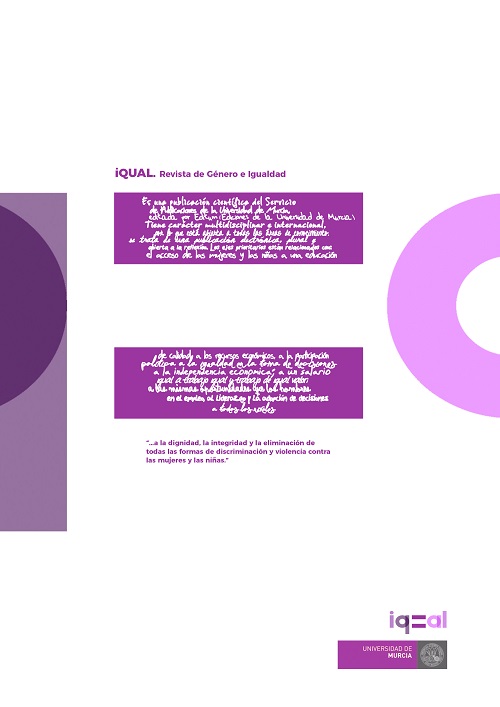L’intricata relazione tra genere, lingua, dominanza e identità: Una revisione della letteratura che esplora metodi misti vs. discorsi omosessuali in ambito privato e pubblico, sessualità e oltre
Abstract
Sia le prove empiriche che quelle aneddotiche suggeriscono che esiste una relazione complessa tra genere e linguaggio. Questo può essere analizzato da diverse prospettive. Al di là dell'ambito privato, il discorso delle donne è stato studiato all'interno del quadro specifico fornito dalla sfera pubblica. Vediamo che comunemente ci si aspetta che le donne si conformino alla regola androcentrica, adottando così lo stile più incentrato sull’informazione del discorso tutto maschile. Questo articolo analizza come un contesto specifico segue le linee di altre polarizzazioni ideologiche comuni.
Downloads
-
Abstract457
-
pdf 134
Riferimenti bibliografici
Abe, H. (2004). Lesbian bar talk in Shinjuku, Tokyo. Gender and Language: A Reader, 2nd edi-tion (Coates, J., & Pichler, P. (eds.)), pp. 57-70. Oxford: Blackwell, 2011.
Boxer, D., & Gritsenko, E. (2005). Women and surnames across cultures: Reconstituting identi-ty in marriage. Women and Language, 28 (2), pp. 1-11.
Cameron, D. (1997). Performing gender identity: Young men’s talk and the construction of heterosexual masculinity. Gender and
Language: A Reader, 2nd edition (Coates, J., & Pichler, P. (eds.)), pp. 57-70. Oxford: Blackwell, 2011.
Cameron, D.: https://debuk.wordpress.com.
Jun 16, 2019: Verbal hygiene for men
Oct 4, 2019: Bullshit: The struggle goes on
Oct 31, 2019: Out of humour
Nov 10, 2019: The spinster returns
Nov 24, 2019: Marie and Fiona go to Washington
Coates, J. (1989). Gossip revisited: Language in all-female groups. Gender and Language: A Reader, 2nd edition (Coates, J., &
Pichler, P. (eds.)), pp. 57-70. Oxford: Blackwell, 2011.
DeCapua, A., & Boxer, D. (1999). Bragging, boasting and bravado: Male banter in a brokerage house. Women and Language, 22 (21), pp. 5-22.
DeFrancisco, V. L. (1991). The sounds of silence: How men silence women in marital relations. Gender and Language: A Reader, 2nd edition (Coates, J., & Pichler, P. (eds.)), pp. 57-70. Oxford: Blackwell, 2011.
Hall, K. (2009). Boys’ talk: Hindi, moustaches and masculinity in New Delhi. Gender and Lan-guage: A Reader, 2nd edition (Coates, J., & Pichler, P. (eds.)), pp. 57-70. Oxford: Blackwell, 2011.
Herring, S. C., Johnson, D. A., & DiBenedetto, T. (1992). Gender and Language: A Reader, 2nd edition (Coates, J., & Pichler, P. (eds.)), pp. 57-70. Oxford: Blackwell, 2011.
Holmes, J., & Schnurr, S. (2006). Gender and Language: A Reader, 2nd edition (Coates, J., & Pichler, P. (eds.)), pp. 57-70. Oxford: Blackwell, 2011.
Leap, W. L. (2008). Queering gay men’s English. Gender and Language: A Reader, 2nd edition (Coates, J., & Pichler, P. (eds.)), pp. 57-70. Oxford: Blackwell, 2011.
Reynolds, K. A. (1991). Female speakers of Japanese in transition. Gender and Language: A Reader, 2nd edition (Coates, J., & Pichler, P. (eds.)), pp. 57-70. Oxford: Blackwell, 2011.
West, C., & Zimmerman, D. H. (1983). Women’s place in everyday talk: Reflections on parent-child interaction. Gender and Language: A Reader, 2nd edition (Coates, J., & Pichler, P. (eds.)), pp. 57-70. Oxford: Blackwell, 2011.
Copyright (c) 2024 Servicio de Publicaciones Universidad de Murcia

Questo lavoro è fornito con la licenza Creative Commons Attribuzione - Non commerciale 4.0 Internazionale.









